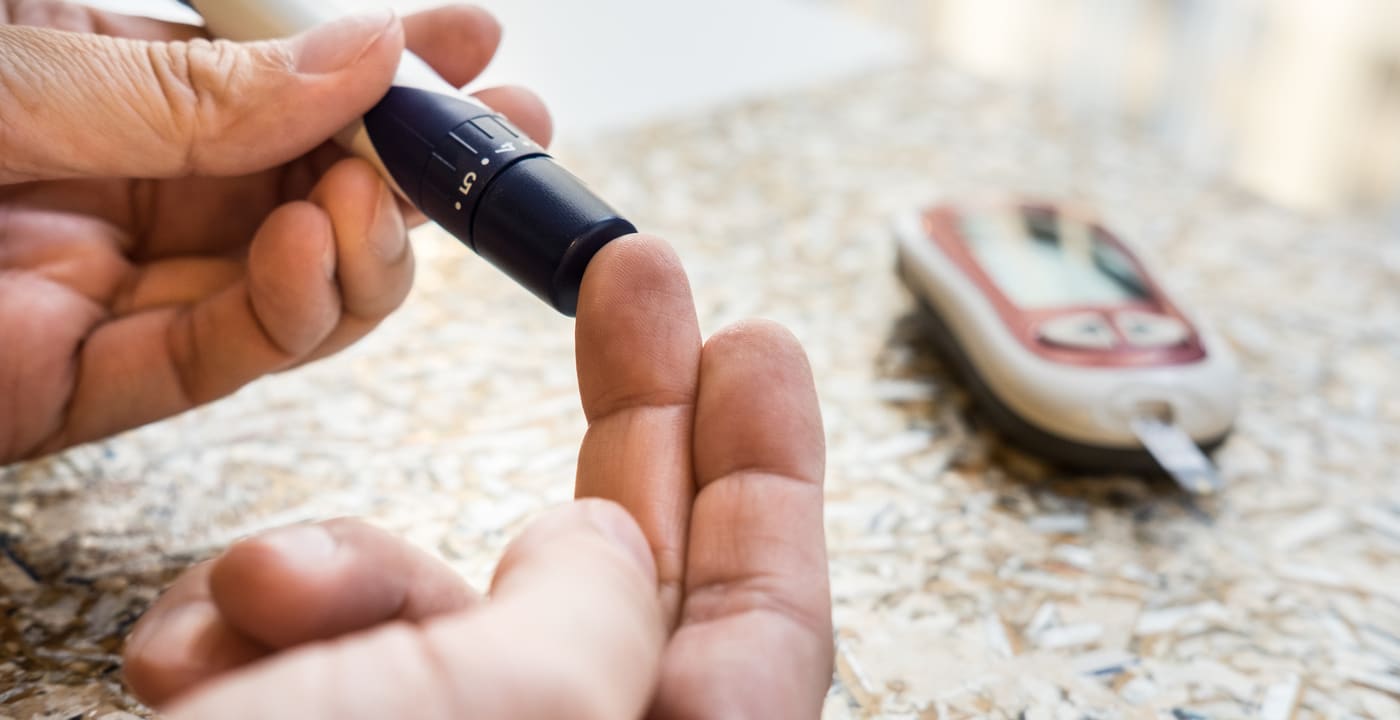Type 2 diabetes and weight: understand the connection to take control of the disease

With COVID-19 dominating headlines and disrupting our lives, most of us have done a silent inventory of our “underlying health conditions” that could lead to more serious illness. Diabetes is one of the most prevalent of those. And since November is National Diabetes Month, it’s a good time to consider what diabetes means for your health even beyond putting you at higher risk for COVID-19 complications.
Diabetes puts you at risk of much more than COVID-19, says Isha Shrestha, MD, of MultiCare Endocrinology Specialists. But weight loss alone can prevent type 2 diabetes, the most common form of the disease, and potentially reverse its progression.
“Losing weight is the main thing that stops or reverses type 2 diabetes,” Dr. Shrestha says. “The main treatment is losing weight.”
Getting control of diabetes is critical for continued health, she says. Heart attacks, strokes, nerve damage, kidney failure, blindness and more can all result from untreated diabetes.
The nerves most distant from your spine are the first to be damaged, which is why foot tingling and numbness is a common complication – sometimes resulting in infection from unnoticed wounds and eventually amputation. “I’ve had patients step on nails and not know it until they suddenly got an unexplained fever,” she says. “They could not feel the nail in their foot.”
There are two distinct types of diabetes, with different causes. In type 1 diabetes, the body’s immune system turns on the pancreas, destroying its ability to produce insulin. This causes irreversible damage and permanent loss of function. Usually occurring in childhood, there is no cure or prevention for type 1 diabetes and treatment will be lifelong.
But the majority of people with diabetes have type 2 diabetes. Because this type is strongly associated with obesity, Dr. Shrestha recommends anyone with a BMI of 30 or above see a nutritionist to help with weight loss.
To understand the connection between weight and type 2 diabetes, it helps to understand how the disease works. When you eat, your body breaks down complex carbohydrates into simple sugars, including glucose. To help your muscles and nerves use glucose, your pancreas produces the hormone insulin, which acts like a key to help the glucose into the tissue, Dr. Shrestha says.
Continuing with the analogy, fat creates something like a frozen lock. It makes it harder for insulin to open these receptor “doors” in the muscles to let glucose in — even with the insulin key. “So, glucose is just running around the blood stream creating havoc,” Dr. Shrestha says. All that glucose is sticky, making it easier for cholesterol to build up in your arteries, causing blockages.
Meanwhile, your nerves and muscles are starving because the glucose can’t get in. Ironically, that can lead to unexplained weight loss. But since it’s muscle, not fat that you lose, the diabetes continues to progress.
Eventually, the effort to produce insulin starts exhausting the insulin-producing beta cells in your pancreas. Once you’ve lost half of your insulin-producing cells your pancreas can’t keep up and you become diabetic. Besides unexplained weight loss, increased thirst and urination are telltale symptoms of diabetes, as the kidneys try to flush out the excess glucose.
But Dr. Shrestha says people shouldn’t wait for symptoms before getting screened for diabetes. Everyone should be screened starting at age 40. If you have a BMI above 30, a family history of type 1 or type 2 diabetes, or a history of heavy drinking (three or more drinks a day) or pancreatitis, don’t wait. Also, if you’ve ever been told you have “prediabetes” or had gestational diabetes during pregnancy, consider asking your doctor about screening sooner.
Screening for diabetes involves a simple blood test called an A1C that measures the amount of sugar attached to red blood cells. Since red blood cells circulate for about three months, that gives you not just a snapshot of what your blood glucose level is, but what it’s averaged over that time, Dr. Shrestha says.
If you are diagnosed, your doctor will prescribe medication to help make it easier for your body to use the insulin it produces. “But none of the medications are as strong as losing weight,” she says.
New technologies like blood glucose sensors that send readings to your cell phone can help, but patients with diabetes have to take responsibility for their health “It requires a lot of self-care and self-management,” she says.
Depression, denial, lack of support and financial difficulties can make it harder for some patients, which is why Dr. Shrestha believes diabetic patients should see an endocrinologist in addition to a primary care doctor. “There are a lot of barriers and doctors work hard to help their patients,” she says. Psychologists, diabetes educators and social workers all form part of the diabetic care team along with doctors. “We deal with all aspects of the disease, not just insulin.”
And whether you have been diagnosed with diabetes or not, Dr. Shrestha says limiting carbs and increasing exercise, even in 10-minute increments, can have a tremendous impact on your health.
If you are struggling to lose weight, talk to your doctor or check in with the MultiCare weight loss services, she says. “Do not just accept your weight and think that is the end of it.”




